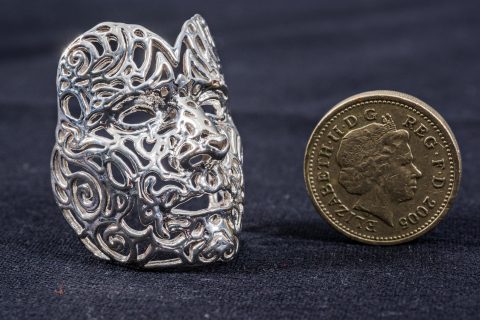Study I – which is the first of a two-part Study, considers the implications for intellectual property law, particularly copyright law, as a result of online sharing platforms dedicated to 3D printing. As such, this Study applies a legal and empirical analysis, to provide a clearer understanding of ‘how’ the sharing happens to provide an understanding of the ‘parameters’ for sharing, e.g. terms and conditions, rules, regulations that apply, together with restrictions and bounds that apply to user behaviour and file-sharing.
The Executive Summary reports the purpose, scope, methodology and key findings from two complementary studies on the intellectual property implications of 3D printing. The two Studies provide for an overarching empirical and legal analysis into the current position of 3D printing.
Dr. Dinusha Mendis, Co-Director of the Centre for Intellectual Property Policy and Management (CPPM) and Associate Professor in Law has been successful in securing RCUK/AHRC funding to further the research into the intellectual property (IP) implications of 3D printing. The newly funded project follows on from the Commissioned Project for the UK Intellectual Property Office (UK IPO)…
The shift in manufacturing capability has raised questions relating to intellectual property law. 3D printing now paves the way for modified, replicated and changed parts which could then be shared, used and sold. This clearly has implications for intellectual property owners.
Drawing on UK and EU copyright laws and their application to 3D printing and CAD files, this paper will, first, question whether CAD files can be protected by copyright law before considering the copyright implications thrown up by the modification of CAD files as a result of scanning and the use of online tools.
The technology in its early stages has already raised questions pertaining to intellectual property (IP) implications. This paper considers the IP implications of 3D printing. In particular the paper considers the challenges to patent law, trademark law, copyright law and design law as a result of this emerging technology.
Book: Handbook on the Digital Creative Economy Authors: Homberg, F., Favale, M., Kretschmer, M., Mendis, D. and Secchi, D. Editors: Towse, R. and Handke, C. Pages: 1-380 Publisher: Edward Elgar Place of Publication: Cheltenham, UK Date of Publication: December 2013 ISBN: 978-1-78100-487-6
The report consisting of two Studies includes a comparative international review of actual and proposed orphan works legislation in several jurisdictions aimed at identifying key characteristics of orphan works licensing schemes and simulated rights clearance for six scenarios in order to identify pricing models in the studied jurisdictions.
This report discusses the legal treatment of parodies in seven jurisdictions that have implemented a copyright exception for parody. The jurisdictions include Australia, Canada, France, Germany, Netherlands, UK, and USA. The report identifies possible regulatory options for benefiting from a parody exception to copyright infringement, and distils the (economic and non-economic) rationales developed by legislators and courts. The report concludes by setting out a list of policy options.
This is a collaborative submission from a group of academics based in the UK with expertise in information technology law and related areas. The preparation of this response has been funded by the Information Technology Think Tank, which is supported by the Arts and Humanities Research Council and led by the SCRIPT/AHRC Centre for Research in Intellectual Property and Technology, University of Edinburgh. This response has been prepared by Abhilash Nair and Dinusha Mendis.


